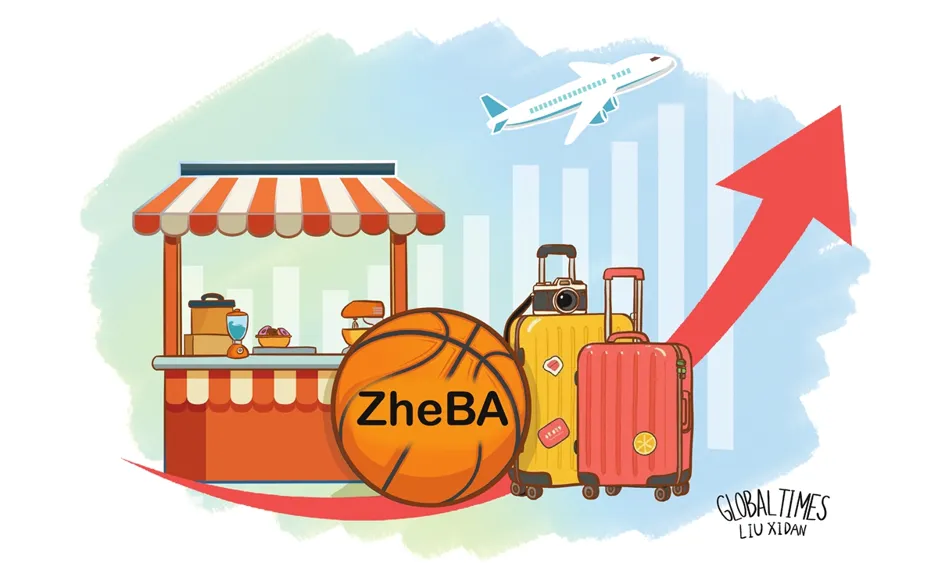Grassroots Sports Surge Reflects Growth in Emerging Markets

Grassroots sports events, such as ZheBA, are making a significant impact on local economies in China by boosting tourism, increasing hotel stays, and enhancing restaurant sales. These events represent a new model of cultural commerce that harnesses the enthusiasm for sports and weaves it into the fabric of local economic development.
Unlike traditional sports leagues, ZheBA and similar events go beyond mere competition. They serve as cultural events that blend sports with tourism and retail, creating a "sports plus cultural tourism and commerce" model. This unique approach is proving to be a robust catalyst for increased consumer spending and economic growth.
The economic effects of ZheBA are particularly evident in local consumption patterns. Host cities experience an influx of fans who occupy hotels, dine at restaurants, and shop at local businesses. This increase in visitors leads to greater occupancy rates and amplified revenue for food establishments and tourism services.
For example, in Wenzhou, a ticket to a ZheBA game doubles as a "tourism pass," granting fans free access for seven days to various attractions, including Yandang Mountain and Jiangxin Islet, along with discounts for outdoor activities. This initiative effectively positions basketball as a gateway to explore broader cultural and tourism offerings in the city.
ZheBA's influence extends beyond just ticket sales or meal purchases. The event has fostered demand in sectors such as sports equipment manufacturing, event management, and advertising, gradually constructing a more comprehensive sports industry ecosystem that creates jobs and opens up new revenue avenues throughout Zhejiang.
The case of Jinhua is particularly illustrative. The city has successfully transformed ZheBA into a thorough consumption festival by merging sports, tourism, and commerce. During a week in July, Jinhua hosted 28 games that attracted around 100,000 attendees, generating ticket sales of 394,000 yuan and an impressive 16.29 million yuan from related markets and shopping festivals.
Moreover, the popularity of ZheBA has stimulated production within the sports goods sector and accelerated the growth of related industries. Yiwu, renowned as the "World's Supermarket," is positioning itself at the forefront of this trend by supplying equipment that enhances the game's ambiance.
Sports manufacturers in Zhejiang recognize the opportunities that ZheBA presents. Companies like Zhejiang Lenwave Sporting Goods Co. have launched official merchandise, such as ZheBA-themed basketballs, and are diversifying their product ranges to cater to various demographics as they anticipate the league’s enduring relevance.
Provincial data underscores the substantial significance of ZheBA. According to the Zhejiang Sports Bureau, the inaugural phase of ZheBA included 250 preliminary matches, drawing a total audience of 778,800 spectators. This phase alone generated 603 million yuan in spending related to cultural, tourism, and sports activities.
Events like ZheBA and Suchao demonstrate how grassroots sports can evolve into vital economic drivers by bridging sports enthusiasm with cultural tourism and enhancing everyday consumption. This model aligns with China's broader economic transition towards an increasingly consumer-driven landscape.
The narratives surrounding Suchao and ZheBA go beyond athleticism; they encapsulate China's ongoing economic transformation. As the country places greater emphasis on fostering domestic consumption, these sporting events highlight the potential of cultural activities to stimulate cross-sector spending.
By channeling passion for sports into tangible economic growth, the regions of Zhejiang and Jiangsu exemplify a potential roadmap for China to develop a sustainable consumption-based economy, reflecting not just improved living standards but also the innovative spirit and vitality of its people.
Read These Next

Shanghai Private Enterprises Achieve Nearly One Trillion Yuan Trade
Shanghai's private enterprises' import/export value hit 982.38B yuan in Jan-Jul 2025, up 25.5% YoY. Exports rose 27%.

China Shipbuilding's Board Meeting: Governance and Financial Prudence
China Shipbuilding Industry Corporation's upcoming board meeting will discuss its half-year financial report for 2025, highlighting corporate governance and the importance of transparency.

Sam Altman: AI Bubble Market Emerging with Increased Spending
Sam Altman of OpenAI warns of a potential bubble in the AI market as investments surge, likening it to the dot-com bubble. He acknowledges AI's revolutionary potential but urges caution regarding inflated valuations and speculation.
